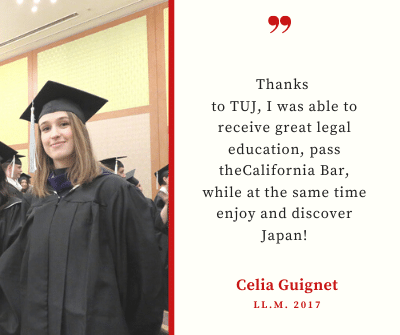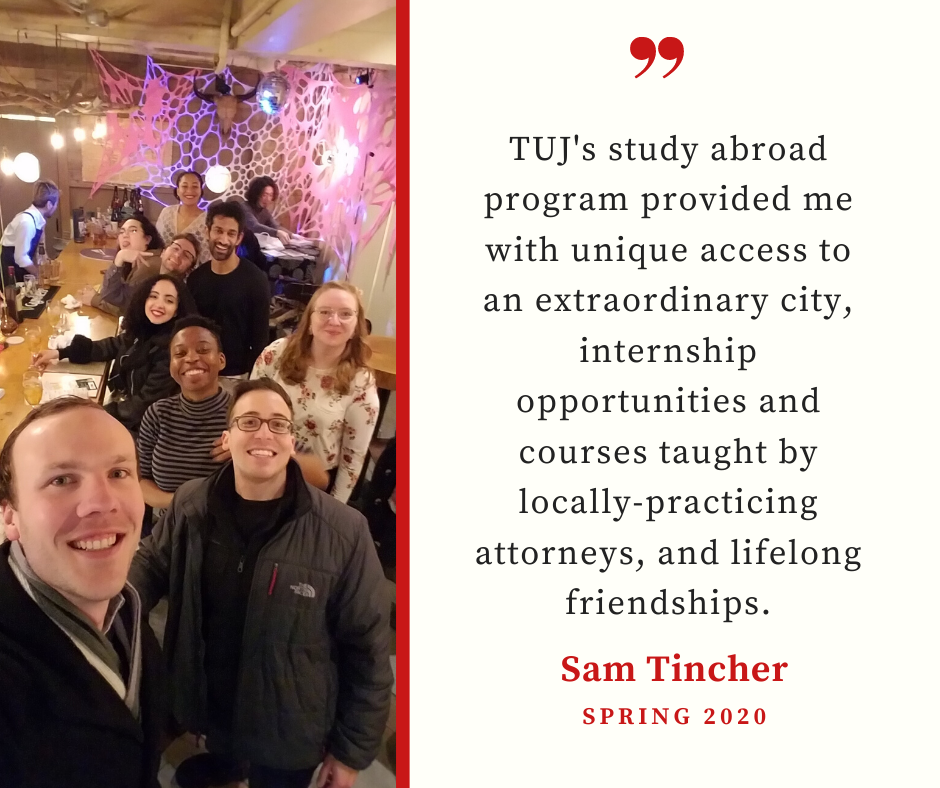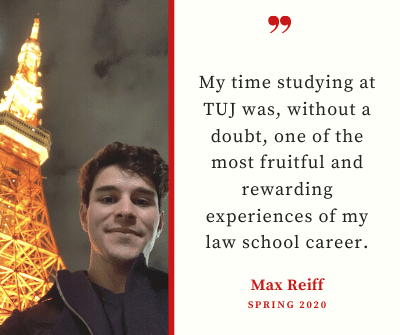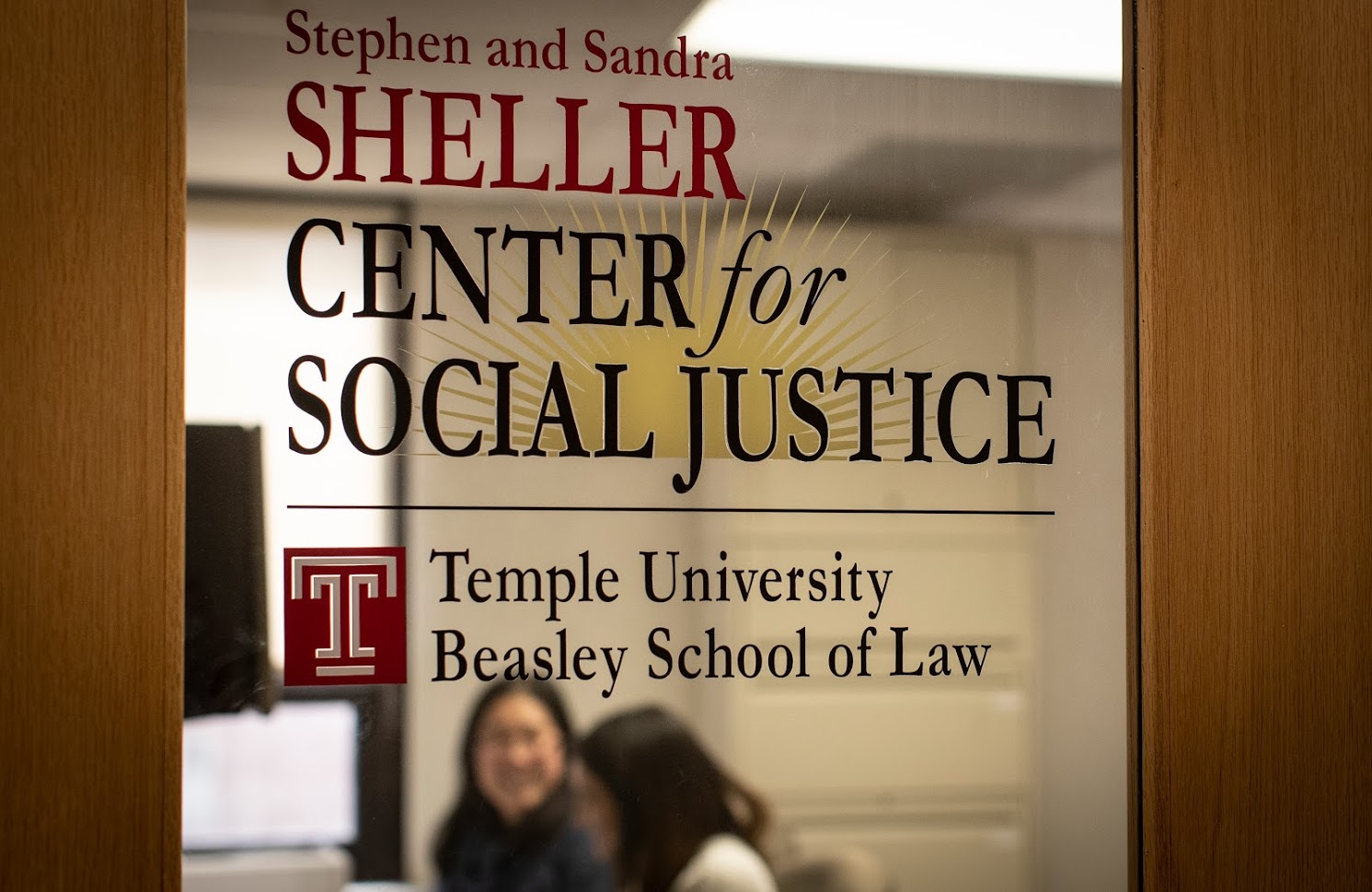Studying for my LL.M. at Temple Law School Japan
I came to Temple University, Japan (TUJ) with no defined plan for the future. I had just finished a study-abroad year in Bristol, England, did not want to go back to my home country of France and wanted to become even more internationally minded . Studying for my LL.M. at Temple University, Japan was perfect for this! I was able to study both American and international law and discover a new culture. Studying at TUJ, interacting with the teachers and the legal community there allowed me to find several internships and the area of law I wanted to specialize in. I took part in an arbitration class offered by TUJ and decided that this was what I wanted to pursue, which led me to relocate to Seoul. Thanks to the TUJ staff and professors, I was able to receive great legal education, pass the California Bar, while at the same time enjoy and discover Japan!









